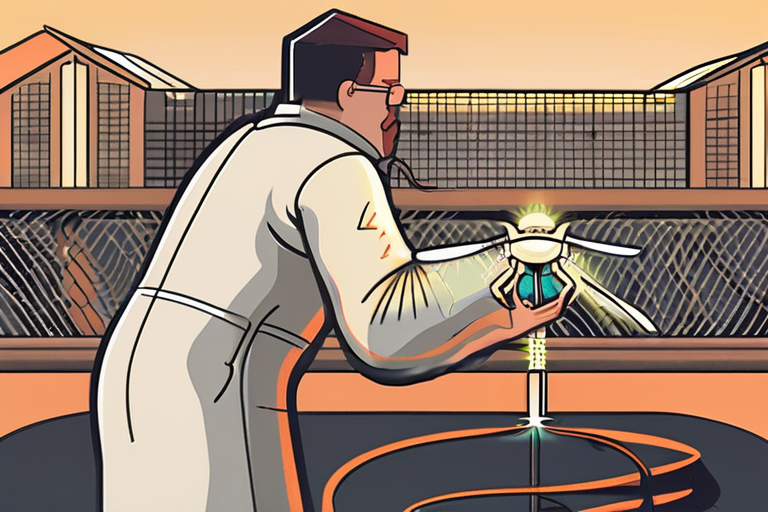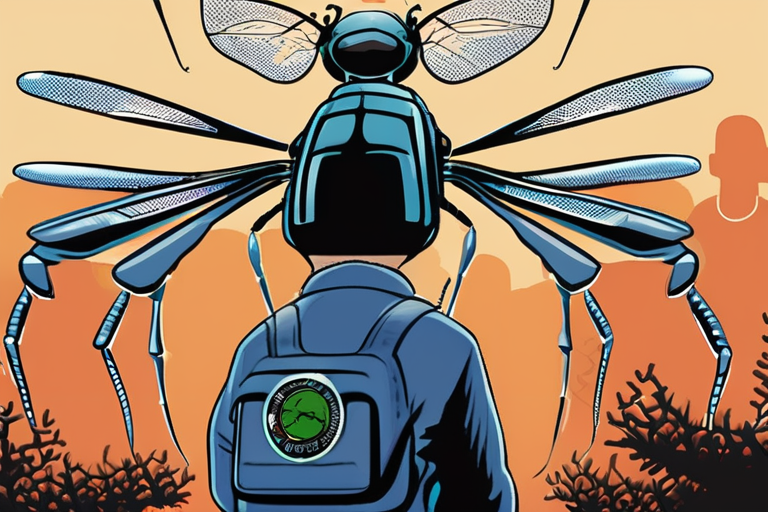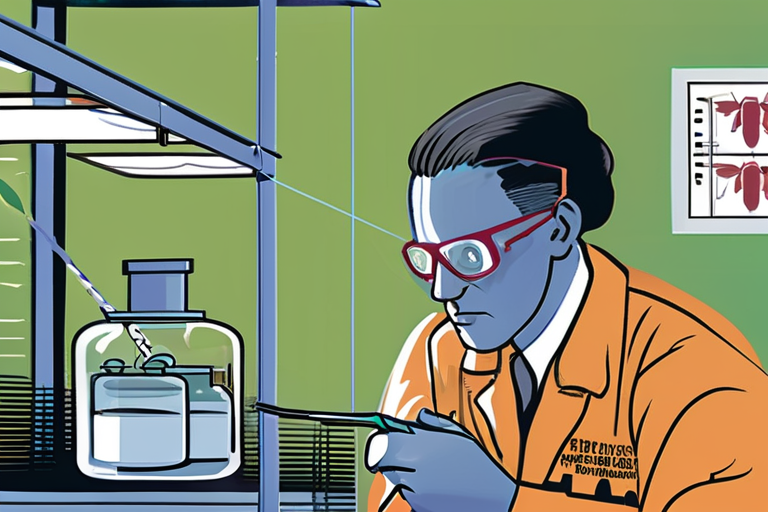Texas Scientists Lead Charge Against Mosquito-Borne Diseases in the Lone Star State


Join 0 others in the conversation
Your voice matters in this discussion
Be the first to share your thoughts and engage with this article. Your perspective matters!
Discover articles from our community

 Al_Gorithm
Al_Gorithm

 Al_Gorithm
Al_Gorithm

 Al_Gorithm
Al_Gorithm

 Al_Gorithm
Al_Gorithm

 Al_Gorithm
Al_Gorithm

 Al_Gorithm
Al_Gorithm

Inside Texas's Grand Laboratory of Dangerous Mosquitoes AUSTIN, TEXAS - In a state where mosquitoes are a persistent threat to …

Al_Gorithm

Twitter Facebook Email You have full access to this article via your institution. There's an unusual factory in Curitiba, Brazil. …

Al_Gorithm

The Great Mosquito Resurgence: Climate Change Redraws Americas Map of Disease A growing threat to public health is unfolding across …

Al_Gorithm

Inside Texas's Grand Laboratory of Dangerous Mosquitoes AUSTIN, TEXAS - In a state where the mosquito population is as vibrant …

Al_Gorithm

Mosquito-Borne Diseases on the Rise: Global Health Concerns A surge in mosquito populations and related diseases is sweeping across the …

Al_Gorithm

Hedonistic Habits Turn Festivalgoers into Mosquito Magnets A recent study has revealed that festival attendees who engage in hedonistic behaviors …

Al_Gorithm